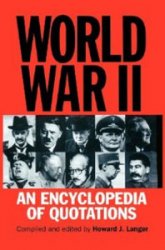Buridan’s ethical theory closely follows upon his naturalistic account of the human soul, insofar as he regards our psychological mechanisms involved in our moral decisions just as natural causal processes as those involved in the workings of any other natural agents, based on a range of natural powers, determined by the nature of the thing. In the case of moral agents, however, there is one power whose operation is not determined to one specific sort of outcome, as the powers of other natural agents are (fire, for instance, cannot but heat by its heat), because its proper operation consists precisely in determining the action of the moral agent as a whole, namely, the free will of a moral agent, acting by choice. As he puts it:
> This is the difference between a voluntary and nonvoluntary agent, namely, that a voluntary agent can freely determine itself to either of two opposite alternatives, other things being entirely equal (Buridan 1513, lb. 3, q. 1, fol. xxvi rb).
To be sure, for Buridan, this is not a demonstratively established conclusion (we do not have a scientific demonstration of the fact that our will is free), as neither is the fact that our intellect is immaterial and immortal, however, in contrast to the intellective soul’s immortality, which we can only hold on the basis of faith, we may be sufficiently certain about our freedom, simply on the basis of the evident experience that we might also choose to act otherwise.
However, just because the operation of the will is not determined to one specific type of outcome, it does not mean that its action is indeterminate in the sense of being randomly spontaneous. The determination of the will, given that it is a rational power, has to come from the intellect, in the sense that as long as the intellect presents different alternative courses of action in such a way that one is judged to be definitely better (more securely leading to happiness) than the others, then the will is naturally going to be inclined to choose that one.
Under this characterization, Buridan might seem to be squarely in the Aristotelian ‘‘intellectualist’’ tradition, as opposed to the Augustinian “voluntarist” tradition, despite his explicit claim that he was seeking a middle ground between these two camps concerning the issue of the determination of our voluntary actions (QNE, III, q. 4, fol. Liiii, ra). For, on the one hand, if the judgment of the intellect about the relative values of possible alternative courses of action fully determines the choice of the will, then, apparently, the will is not free, but its act of choice is determined by the intellect; whereas on the other hand, if the will chooses against the judgment of the intellect, then its choice is irrational, which goes against the very idea that intellect and will are our specifically rational powers (the intellect being our specific cognitive, speculative power, and the will our active, practical power), distinguishing us qua humans from brute animals. However, on Buridan’s solution of the dilemma, we do not have to opt for either of these bad theoretical alternatives. For although the will’s choice may be determined by the intellect with regard to its content, namely, insofar as the will is rationally inclined to choose the (ostensibly) better alternative, nevertheless, the will’s choice may not be determined by the intellect with regard to its execution, for the will always has the power of withholding its choice, especially when the relative values of the alternatives are not quite well-defined by the intellect, and may send the issue back to the intellect for further deliberation.
So, on this conception, the freedom of the will consists not so much in ‘‘spontaneously’’ (and hence, perhaps, irrationally) choosing this rather than that alternative, but rather in choosing or not choosing anything at all. To be sure, one may still say that since the will can rationally defer its choice only when there are reasonable doubts about the intellect’s actual evaluation of possible alternatives (if for no other reason, then because of the lack of relevant information), and doubting is an act of the intellect; therefore, Buridan’s solution is still on the ‘‘intel-lectualist’’ side. However, his refined analysis still leaves more latitude for the will to act on its own than a simple intellectualist solution, as in practical matters it is almost always reasonable to doubt our evaluation of the situation (after all, we know that we are not omniscient), and so prudence (an intellectual virtue) would in most cases allow the will to defer its choice, unless the urgency of the situation does not allow any further hesitation.
In any case, for Buridan, it is certainly not the intellect’s presentation of different alternatives alone that determines the will’s choice. For although the will would rationally choose what is presented by the intellect as the best choice (unless the will freely defers its choice), nevertheless, its choice may also be influenced by its acquired habits, namely, its virtues and vices. But this influence is never full determination: the will is always free to choose otherwise (influenced by the judgment of the intellect) or not to choose at all. So, virtues and vices give only a certain tendency to our choices, manifesting our character.
See also: > Being > Durand of St. Pourcain > Impetus
> John Duns Scotus > John Philoponus > Logic > Mental Language > Modal Theories and Modal Logic > Nicholas of Autrecourt > Peter John Olivi > Peter of SPain
> Substance, Accident and Modes > Thomas Aquinas
> Universals > Voluntarism and Intellectualism > William of Ockham




 World History
World History









